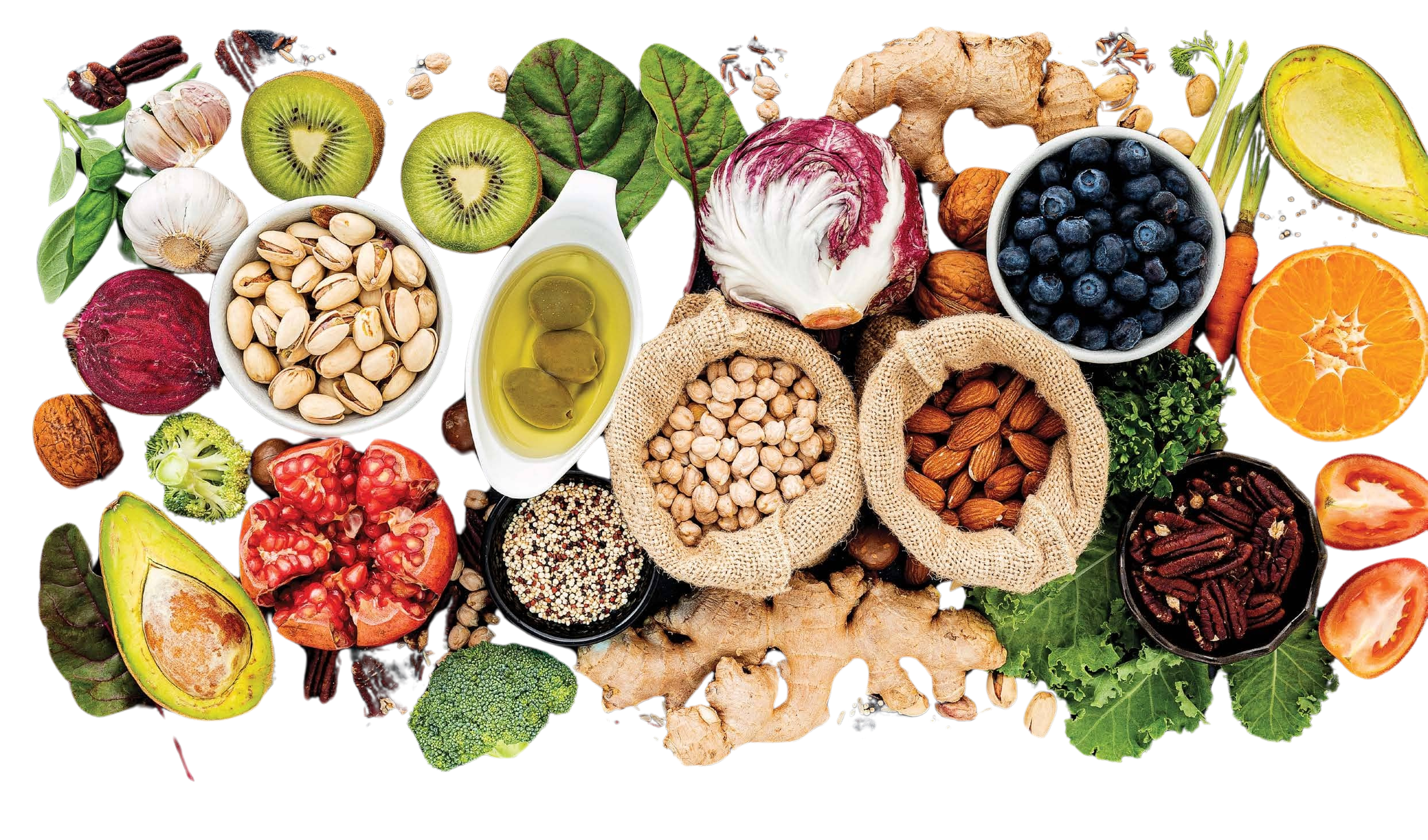Introduction
In the modern world, where environmental stressors, hectic schedules, and nutritional gaps are common, maintaining a strong immune system is more important than ever. Vitamins and supplements play a key role in supporting and enhancing the immune system. To learn how they help, visit WebMD’s Immune Boosting Vitamins. Your immune system serves as your body’s first line of defense, safeguarding you from harmful pathogens, illnesses, and infections. While a healthy lifestyle and balanced diet are fundamental, vitamins and supplements offer an effective way to bridge nutritional gaps and provide your immune system with the extra support it needs to thrive.
This comprehensive guide delves into the critical role of essential nutrients in strengthening immunity, backed by scientific insights and expert recommendations. From understanding how specific Vitamins and Supplements like Vitamin C and Vitamin D directly contribute to immune cell function, to exploring ways to integrate Vitamins and Supplements into your daily routine, this resource equips you with practical knowledge to make informed choices about Vitamins and Supplements for optimal health.
1. Why Immune Health Matters

Your immune system serves as your body’s natural defense mechanism, tirelessly working to protect you from infections, viruses, and chronic diseases. A strong immune system helps protect the body from infections and diseases. To understand why immune health is essential, visit WebMD’s Importance of Immune Health. A well-functioning immune system is key to staying healthy, energetic, and resilient, enabling you to lead a vibrant and active lifestyle. However, factors like poor nutrition, high stress levels, and environmental pollutants can compromise your immune system, leaving you vulnerable to various health issues.
To combat these challenges, vitamins and supplements offer a powerful solution to bridge nutritional gaps, enhance immunity, and fortify your overall health. By supporting critical immune functions, they help your body stay prepared to tackle external threats effectively.
Key Factors That Impact Immune Health
Understanding what affects your immune system is essential to keeping it strong:
- Dietary Deficiencies: A lack of essential nutrients weakens your body’s defense mechanisms.
- Chronic Stress: High-stress levels suppress immune response and make you more susceptible to illnesses.
- Environmental Toxins: Exposure to pollution and harmful chemicals can impair immunity over time.
- Aging: Natural aging reduces the efficiency of the immune system, necessitating additional support.
The Role of Vitamins and Supplements in Immune Health
Incorporating vitamins and supplements into your routine can:
- Fill Nutritional Gaps: Ensure your body receives adequate amounts of key nutrients.
- Strengthen Immune Response: Enhance the production and activity of immune cells like T-cells and white blood cells.
- Combat Oxidative Stress: Antioxidants like Vitamin C and E protect cells from free radical damage.
- Support Gut Health: Probiotics and prebiotics improve gut microbiome balance, which directly impacts immunity.
By prioritizing immune health and adopting a proactive approach with Vitamins and Supplements, you can not only prevent common illnesses but also enhance your overall quality of life. Invest in Vitamins and Supplements today for a stronger tomorrow! Learn about the significance of a healthy immune system at Mayo Clinic’s Immune System Overview.
2. The Role of Vitamins in Boosting Immunity

Vitamins and Supplements are essential micronutrients that play a critical role in supporting various bodily functions, including strengthening the immune system. By enhancing immune cell production, protecting against oxidative stress, and maintaining overall health, Vitamins and Supplements act as key players in building a resilient defense mechanism. Vitamins like C, D, and E play a crucial role in supporting the immune system. To learn more about their benefits, visit WebMD’s Guide to Vitamins for Immune Health. Incorporating Vitamins and Supplements into your daily routine can significantly contribute to better immune health and overall well-being.
Here’s how some vital vitamins contribute to boosting immunity:
Vitamin C:
- Known as a powerful antioxidant, it combats free radicals, reducing oxidative stress.
- Promotes the production and activity of white blood cells (lymphocytes and phagocytes), essential for fighting infections.
- Supports faster recovery from common colds and respiratory illnesses.
Vitamin D:
- Often called the “sunshine vitamin,” it plays a central role in activating immune defenses.
- Enhances the pathogen-fighting abilities of monocytes and macrophages, critical components of the immune system.
- Helps reduce inflammation and the risk of autoimmune disorders.
Discover the importance of vitamin D for immune function at Healthline’s Vitamin D and Immunity.
Vitamin A:
- Maintains the integrity of mucosal barriers, your body’s first line of defense against invading pathogens.
- Regulates the immune response, ensuring balance and preventing overactivity.
- Supports the production of antibodies and immune cells like T-cells.
Vitamin E:
- A potent antioxidant that protects immune cells from damage caused by oxidative stress.
- Improves T-cell function, aiding in a robust response to infections.
- Helps maintain skin health, an important physical barrier against pathogens.
Vitamin B6:
- Supports biochemical reactions essential for a healthy immune system.
- Aids in the production of antibodies and red blood cells, which transport oxygen to tissues.
- Plays a role in regulating cytokines, proteins that coordinate immune responses.
Why Vitamins Are Essential for Immune Health
- Natural Defense Enhancement: Vitamins strengthen your body’s ability to fight infections and viruses.
- Oxidative Stress Reduction: Antioxidant-rich vitamins protect cells from free radical damage.
- Immune Cell Activation: Nutrients like Vitamin D and C directly activate key immune cells.
- Nutritional Gaps Filling: Vitamins bridge dietary deficiencies, especially in today’s fast-paced lifestyles.
Incorporating these vitamins and supplements through a balanced diet or high-quality vitamins and supplements ensures your immune system functions at its peak, providing protection against common illnesses and chronic conditions. Take proactive steps to safeguard your health by prioritizing essential vitamins and supplements today!
3. How Supplements Complement Your Diet

Supplements serve as valuable support systems for your health, complementing rather than replacing a balanced and nutritious diet. While a well-rounded diet is the cornerstone of good health, supplements can fill gaps and provide targeted nutrients that are difficult to obtain through food alone. Supplements can fill nutritional gaps and enhance overall health when added to a balanced diet. To understand how supplements support your diet, visit WebMD’s Guide to Supplements. They are particularly beneficial for individuals with specific deficiencies, dietary restrictions, or increased nutritional needs due to lifestyle factors, stress, or age.
Here’s how supplements contribute to boosting immunity and overall well-being:
Key Supplements for Immune Health
Probiotics:
- Promote a healthy gut microbiome, where nearly 70% of the immune system resides.
- Improve nutrient absorption and enhance the production of beneficial gut bacteria that regulate immune responses.
- Reduce the risk of infections by strengthening intestinal barriers and limiting the growth of harmful pathogens.
Zinc:
- Plays a critical role in cell-mediated immunity, helping activate T-cells that fight infections.
- Supports wound healing, reducing inflammation, and boosting immune cell production.
- Aids in the production of cytokines, proteins essential for coordinating immune responses.
Omega-3 Fatty Acids:
- Reduce chronic inflammation, a key factor in weakening immunity.
- Improve immune cell function, including B-cells and T-cells, which are critical for fighting off infections.
- Support cardiovascular health, indirectly benefiting overall immunity.
Vitamin C Supplements:
- Provide an extra boost for those unable to consume sufficient fresh fruits and vegetables.
- Help the body recover quickly from illnesses like colds and flu.
Vitamin D Supplements:
- Particularly useful for individuals with limited sun exposure or those living in colder climates.
- Enhance the body’s ability to fight pathogens and reduce the risk of respiratory infections.
Benefits of Incorporating Supplements Into Your Routine
- Targeted Nutrition: Help address specific deficiencies, ensuring the body gets essential nutrients.
- Enhanced Immune Response: Provide extra support during illness, stress, or seasonal changes.
- Convenience and Consistency: Ideal for busy lifestyles or dietary restrictions.
- Support for Chronic Conditions: Aid in managing conditions like inflammation or low immunity caused by aging.
The Takeaway
Vitamins and Supplements are powerful allies in achieving optimal health when used wisely and in conjunction with a healthy diet. By incorporating immune-boosting Vitamins and Supplements like probiotics, zinc, and omega-3 fatty acids, you can strengthen your body’s natural defenses and improve overall wellness. Always consult a healthcare professional to choose Vitamins and Supplements that best suit your individual needs for maximum benefit.
4. Benefits of Strengthening Immunity Through Nutrition

A well-nourished immune system not only protects you from everyday illnesses but also improves your overall quality of life. By incorporating the right vitamins and supplements into your diet, you can unlock a wide range of benefits that go beyond just fighting off infections. Regularly including vitamins and supplements in your routine ensures that your body receives the essential nutrients needed for optimal function. With the proper balance of vitamins and supplements, you can support your immune system and enjoy lasting health benefits.
Here’s how strengthening your immunity through proper nutrition can positively impact your health:
Reduced Susceptibility to Illnesses:
- A strong immune system lowers your chances of catching common colds, flu, and other infections.
- Helps the body resist seasonal viruses and environmental pathogens.
Faster Recovery from Illnesses:
- Vitamins like Vitamin C and Zinc accelerate the healing process.
- Reduces the duration and severity of illnesses, enabling a quicker return to daily activities.
Improved Energy Levels and Vitality:
- Proper nutrition fuels your body, ensuring you feel more energetic and less fatigued.
- Vitamins like B-complex and Iron contribute to sustained energy levels and overall stamina.
Enhanced Protection Against Chronic Diseases:
- A well-functioning immune system reduces the risk of autoimmune diseases and chronic conditions like diabetes, heart disease, and arthritis.
- Antioxidants from supplements help combat inflammation and oxidative stress, key factors in chronic illnesses.
Better Skin Health and Wound Healing:
- Nutrients like Vitamin A, Vitamin C, and Zinc promote faster healing of cuts and wounds.
- Strengthens skin as a natural barrier, reducing the chances of infections and irritations.
Additional Benefits of Immune-Boosting Nutrition
- Improved Mental Clarity: A strong immune system and proper nutrition support brain health, reducing fatigue and brain fog.
- Balanced Inflammatory Response: Omega-3 fatty acids and probiotics help regulate inflammation, keeping the body in balance.
- Support for Aging: Nutritional immunity slows age-related immune decline, ensuring long-term health and vitality.
By adopting a nutrient-rich diet and including high-quality supplements, you can not only strengthen your immune system but also enjoy a more active and vibrant life. Prioritize your health today for a stronger tomorrow! Explore the role of nutrition in immune support at Mayo Clinic’s Guide to Immune System Nutrition.
5. Top Natural Sources of Immunity-Boosting Nutrients

While Vitamins and Supplements are a convenient way to enhance your immunity, whole foods provide the richest, most bioavailable forms of vitamins and minerals. A nutrient-dense diet with immune-boosting foods can offer long-lasting benefits, making these foods a cornerstone of a healthy lifestyle. Foods rich in vitamins, minerals, and antioxidants can naturally enhance your immune system. For more on the best natural immunity-boosting foods, visit WebMD’s Immune Boosting Foods.
However, combining a well-balanced diet with Vitamins and Supplements ensures your body receives all the essential nutrients it needs. By strategically incorporating Vitamins and Supplements into your routine, you can further strengthen your immune system for optimal health.
Here are some of the top natural sources of immunity-boosting nutrients:
Citrus Fruits:
- Oranges, lemons, grapefruits are rich in Vitamin C, a powerful antioxidant that boosts immune cell function.
- Vitamin C promotes white blood cell production, helping your body fight infections more effectively.
- These fruits are also packed with fiber, which supports gut health, a crucial part of immunity.
Fatty Fish:
- Salmon, mackerel, sardines are excellent sources of Vitamin D and Omega-3 fatty acids.
- Vitamin D enhances immune system function, improving the body’s ability to defend against harmful pathogens.
- Omega-3 fatty acids reduce inflammation and support cellular immunity, crucial for optimal immune health.
Leafy Greens:
- Spinach, kale, and swiss chard are rich in Vitamins A and E, both vital for protecting immune cells.
- Vitamin A supports the health of mucosal barriers in the lungs, intestines, and other areas of the body, acting as a first line of defense.
- Vitamin E protects immune cells from oxidative stress, ensuring they function at their peak.
Nuts and Seeds:
- Almonds, sunflower seeds, and pumpkin seeds provide high amounts of Vitamin E, a potent antioxidant.
- Vitamin E helps protect immune cells from damage and supports overall immune function.
- These snacks are also rich in healthy fats, supporting overall well-being and cell health.
Legumes:
- Lentils, chickpeas, and beans are excellent sources of Zinc and Vitamin B6, both of which are essential for proper immune function.
- Zinc is critical for activating immune cells like T-cells and macrophages, and Vitamin B6 aids in the production of antibodies.
- Legumes are also a great plant-based source of protein and fiber, contributing to overall health and immunity.
Additional Natural Sources of Immunity-Boosting Nutrients
- Garlic: Known for its natural antiviral and antibacterial properties, garlic supports the immune system’s ability to fight off infections.
- Ginger: This root has anti-inflammatory properties and can enhance immune function by promoting better digestion and reducing oxidative stress.
- Yogurt and Kefir: Rich in probiotics, these foods support gut health, which is directly linked to immune system function.
Incorporating these immune-boosting foods into your diet provides your body with the natural nutrients it needs to stay strong, resilient, and healthy. A well-rounded diet of whole foods, combined with healthy lifestyle choices, forms the foundation for optimal immune health. Discover top immune-boosting foods at Mayo Clinic’s Immune-Boosting Nutrients.
6. Tips for Choosing the Right Supplements

With an overwhelming variety of supplements available today, selecting the right one for your needs can be a daunting task. Choosing the right supplements involves understanding your health needs and researching quality products. For expert advice on selecting supplements, visit WebMD’s Supplement Guide. To ensure that you’re choosing high-quality supplements that are both effective and safe, consider the following tips:
Look for Third-Party Testing:
- Ensure the supplement has undergone independent third-party testing for purity and potency.
- This guarantees that the supplement contains the ingredients and dosages it claims, without contaminants or harmful substances.
- Trusted third-party certifications, like those from USP (United States Pharmacopeia) or NSF International, are indicators of quality.
Choose Supplements Based on Your Specific Needs:
- Select supplements that align with your individual health goals. For example, Vitamin D is beneficial for those with limited sun exposure or living in colder climates.
- Look for probiotics to support digestive health or Zinc to boost immune function.
- Make sure you’re addressing any nutritional deficiencies or lifestyle factors (e.g., pregnancy, stress, aging) that may impact your nutrient requirements.
Avoid Supplements with Artificial Additives or Fillers:
- Choose supplements that are free from artificial colors, flavors, and fillers. These additives can diminish the quality of the supplement and sometimes cause unwanted side effects.
- Opt for natural, whole-food-based supplements that are more easily absorbed and utilized by the body.
Consult a Healthcare Professional:
- Before starting any new supplement regimen, consult a healthcare provider or a nutritionist.
- A professional can help you choose the right supplements based on your individual health needs, medical conditions, and current medications.
- Personalized recommendations ensure you’re making safe, effective choices tailored to your unique requirements.
Research the Brand and Ingredients:
- Choose reputable supplement brands with transparent ingredient sourcing and clear labeling.
- Look for certifications like organic, GMO-free, or vegan to ensure the supplement aligns with your dietary preferences and values.
Check for Bioavailability:
- Bioavailability refers to the degree to which your body can absorb and utilize a nutrient.
- Choose supplements that include bioavailable forms of vitamins and minerals, such as methylcobalamin for Vitamin B12 or chelated minerals for better absorption.
The Takeaway
Selecting the right Vitamins and Supplements requires thoughtful consideration and a focus on quality. By prioritizing third-party testing, personalized recommendations, and avoiding unnecessary additives, you can enhance your health safely and effectively. Remember, Vitamins and Supplements should complement a well-balanced diet and healthy lifestyle, not replace them. Making informed choices about Vitamins and Supplements ensures that you receive maximum benefits while maintaining your overall well-being.
7. Best Practices for Boosting Immunity

Enhancing your immunity is not solely about taking Vitamins and Supplements—it’s a holistic approach that involves lifestyle changes and healthy habits. A healthy lifestyle, including a balanced diet and regular exercise, plays a key role in boosting immunity. Incorporating Vitamins and Supplements alongside these habits can further strengthen your immune system and support overall well-being.
For more tips on strengthening your immune system, visit WebMD’s Guide to Boosting Immunity. When combined with proper nutrition, these practices can significantly strengthen your immune system and promote long-term wellness. Here are some of the best practices for boosting your immunity:
Maintain a Balanced Diet:
- Whole, nutrient-rich foods provide essential vitamins, minerals, antioxidants, and healthy fats that are crucial for immune health.
- Include a variety of fruits, vegetables, lean proteins, and whole grains in your diet to ensure you’re getting all the necessary nutrients.
- Foods rich in vitamins A, C, D, and E help fight infections and support immune function.
Stay Hydrated:
- Water is vital for the transportation of nutrients and the removal of toxins and waste from your body.
- Proper hydration ensures that your body can function optimally, including maintaining the efficiency of your immune system.
- Aim for 8-10 glasses of water a day, and increase intake if you’re exercising or in a hot climate.
Exercise Regularly:
- Physical activity enhances circulation, which helps immune cells travel through your body more efficiently.
- Regular moderate exercise has been shown to boost the immune system by promoting better oxygen flow to tissues and organs.
- Activities like walking, swimming, or cycling can improve overall health while supporting immune function.
Get Adequate Sleep:
- Sleep is critical for the repair and recovery of the immune system.
- Poor or insufficient sleep can weaken your body’s defenses, making it more susceptible to illness.
- Aim for 7-9 hours of quality sleep each night to allow your immune system to function at its best.
Manage Stress:
- Chronic stress can weaken your immune system over time by increasing the production of cortisol, a hormone that impairs immune function.
- Stress management techniques like meditation, yoga, and deep breathing exercises can help maintain a healthy balance.
- Regular relaxation practices help lower inflammation and support immune resilience.
Avoid Smoking and Excessive Alcohol Consumption:
- Smoking and excessive alcohol consumption can suppress immune function and make you more susceptible to infections.
- Limiting or avoiding these habits helps maintain a strong immune system and supports overall health.
Practice Good Hygiene:
- Wash your hands regularly and practice good hygiene to reduce the risk of infections.
- Avoid touching your face, especially your eyes, nose, and mouth, to prevent the spread of germs.
The Takeaway
Boosting your immunity involves more than just taking Vitamins and Supplements. By integrating a combination of healthy habits, such as maintaining a balanced diet, staying hydrated, and managing stress, you can significantly enhance your immune health. Adopting these practices alongside Vitamins and Supplements will ensure your immune system stays strong, resilient, and ready to defend your body against illness. Discover effective ways to boost your immunity at Healthline’s Immune Health Tips. Remember, combining healthy lifestyle choices with the right Vitamins and Supplements can maximize your immunity and overall well-being.
8. Common Myths About Vitamins and Immunity

Despite the widespread use of vitamins and supplements, there are still many misconceptions that can mislead individuals in their journey to boost immunity. There are several myths surrounding vitamins and their role in immune health. To debunk these myths, visit WebMD’s Vitamins and Immunity Myths. Let’s take a closer look at some of the most common myths and separate fact from fiction.
Myth: Taking Mega-Doses of Vitamin C Prevents Colds
- Reality: While Vitamin C has been shown to reduce the severity and duration of a cold, it does not outright prevent infections.
- Studies suggest that Vitamin C can help bolster immune function, but megadoses won’t guarantee immunity from illness. A balanced intake is key for optimal immune support.
Myth: Supplements Can Replace a Healthy Diet
- Reality: Supplements are meant to complement a healthy diet, not replace it.
- Whole foods provide a diverse range of nutrients that work synergistically in the body, something that isolated supplements can’t fully replicate.
- A nutrient-dense diet rich in fruits, vegetables, whole grains, and lean proteins is still the best way to meet your nutritional needs.
Myth: Natural Supplements Are Always Safe
- Reality: Just because a supplement is labeled “natural” does not mean it is automatically safe.
- Overuse of natural supplements, or combining them with prescription medications, can lead to harmful interactions or side effects.
- Always check with a healthcare provider before starting any supplement regimen, especially if you have underlying health conditions or are taking medications.
Myth: More is Better When It Comes to Vitamins
- Reality: Higher doses of certain vitamins, especially fat-soluble ones like Vitamin A, D, and E, can accumulate in the body and lead to toxicity.
- More is not always better; it’s important to follow recommended dosages for each vitamin to avoid adverse effects.
Myth: Immune Boosting Supplements Work Immediately
- Reality: While supplements can support the immune system over time, their effects are not instant.
- Consistent use, combined with a healthy lifestyle, will help strengthen immunity gradually. Be patient and allow your body the time it needs to benefit from these nutrients.
Myth: All Supplements Are Created Equal
- Reality: The quality and bioavailability of supplements can vary significantly.
- Choose high-quality brands that undergo third-party testing for potency, purity, and effectiveness. Not all supplements are absorbed the same way, so it’s important to pick the right form for optimal results.
The Takeaway
There are many myths surrounding Vitamins and Supplements, but understanding the truth can help you make informed decisions about your health. Remember, Vitamins and Supplements should always complement a healthy diet, not replace it, and should be used wisely to maximize their benefits. By debunking these common myths about Vitamins and Supplements, you can take proactive steps toward supporting your immune health with the right knowledge and approach. Find out what’s true and what’s false about vitamins and immunity at Healthline’s Debunking Vitamin Myths.
9. Warning Signs of Nutritional Deficiency

Your body often gives you subtle (or not-so-subtle) signals when it’s lacking essential nutrients. Nutritional deficiencies can lead to various health issues, and it’s important to recognize the signs early. For more on identifying nutritional deficiencies, visit WebMD’s Symptoms of Nutritional Deficiency. Recognizing these signs early can help you address any nutritional deficiencies before they impact your overall health and immune system. Here are some common warning signs to be aware of:
Frequent Colds or Infections:
- If you find yourself getting sick often, it may be a sign that your immune system is compromised due to a lack of key nutrients.
- Vitamin C, Vitamin D, and Zinc deficiencies, in particular, can weaken your body’s defense mechanisms, making it more susceptible to colds, flu, and infections.
Persistent Fatigue and Low Energy:
- Feeling constantly tired despite adequate rest could be a result of deficiencies in Iron, Vitamin B12, or Folate.
- These nutrients are essential for energy production and red blood cell formation. A lack of them can lead to anemia, causing feelings of fatigue and sluggishness.
Slow Wound Healing:
- Slow or poor wound healing is a common sign of nutrient deficiencies, particularly in Vitamin C and Zinc.
- These nutrients are essential for tissue repair, collagen formation, and immune function. If wounds or cuts take longer to heal than usual, it’s time to assess your nutrient intake.
Brittle Hair and Nails:
- Brittle, thinning hair and fragile nails can be signs of deficiencies in Biotin, Iron, or Zinc.
- These nutrients play a crucial role in hair and nail health, supporting their strength and growth. Inadequate levels can lead to hair loss or weak, breakable nails.
Mood Swings and Irritability:
- If you’re feeling more irritable or down than usual, it could be linked to Vitamin D, Vitamin B6, or Magnesium deficiencies.
- These nutrients are involved in neurotransmitter regulation and mood stabilization. A deficiency may impact your overall sense of well-being.
Discover how to spot nutritional deficiencies at Healthline’s Nutrient Deficiency Symptoms.
Dry Skin and Rashes:
- Dry, flaky skin or the development of rashes can indicate deficiencies in Vitamin A or Essential Fatty Acids.
- These nutrients support skin hydration, elasticity, and overall health. Without them, the skin may become dry, irritated, or prone to conditions like eczema.
The Takeaway
Nutritional deficiencies can manifest in various ways, and your body is often trying to tell you something through these warning signs. If you experience any of these symptoms, it’s important to consult with a healthcare professional and consider adjusting your Vitamins and Supplements routine. By addressing these signs early and incorporating the right Vitamins and Supplements into your diet, you can restore your body’s balance and maintain optimal health. Ensuring you’re getting the necessary Vitamins and Supplements helps prevent deficiencies and supports your overall well-being.
Conclusion
Strengthen Your Immunity Today

Investing in your immune health through Vitamins and Supplements is a proactive step toward achieving a healthier and more resilient life. By integrating essential Vitamins and Supplements into your routine, you are supporting your body’s defense mechanisms and overall well-being.
However, it’s important to remember that immunity is not solely dependent on Vitamins and Supplements. For optimal results, pair these with a balanced diet, regular exercise, and effective stress management practices. By choosing the right Vitamins and Supplements, you can enhance your immune system and improve your quality of life in the long term.
Stay healthy, stay strong!
Discover expert health advice and top-quality wellness products at Health Medicine Mall, your trusted source for effective medical solutions and premium healthcare resources.

